Projects selected in 2022
Adna Luana Santana Siqueira
 |
This report presents the results of the study titled ?Impacts of Distance Education on Students in the Interior of Pernambuco and the State Capital: A Comparative Study.? A questionnaire was applied to 32 students of secondary education (ensino médio) and higher education (ensino superior) attending public and private institutions in two cities of the state of Pernambuco: Afogados da Ingazeira (a city in the sertão region of Pernambuco) and Recife (the state capital). In addition to personal data, the questionnaire included questions to understand the context of the students during the period of distance education. It was found that all but one participants believe that distance education had an impact on their lives. Of the 9 participants in Afogados da Ingazeira, 7 reported suffering negative impacts, 1 mentioned positive impacts, and 1 replied that they had felt both positive and negative impacts. Of the 23 students in Recife, 13 reported suffering negative impacts, 5 reported positive impacts, 2 reported both positive and negative impacts, 2 did not answer the question, and 1 said they had not felt any impact. Overall, students felt more negative impacts in both cities. The impacts mentioned by the students include learning difficulties, Internet quality, etc. It is hoped that the results of this investigation will help professionals, organizations, and institutions to gain a better understanding of distance education and seek ways to prevent many of these problems from recurring. |
Daniela Cuspoca Orduz
 |
With the fourth industrial revolution currently under way, it is fundamental for public education —which is responsible for the education of almost 80% of the country's students— to be able to keep up with current learning processes regarding digital skills for students in the classroom. This research mainly aims at identifying improvements and challenges of the curricula implemented by public schools in relation to the development of students' technological vocation and skills. In particular, it conducts a comparative analysis of the experiences gained in the cities of Bogotá and Medellín. |
Debora Emmanuela Toussaint
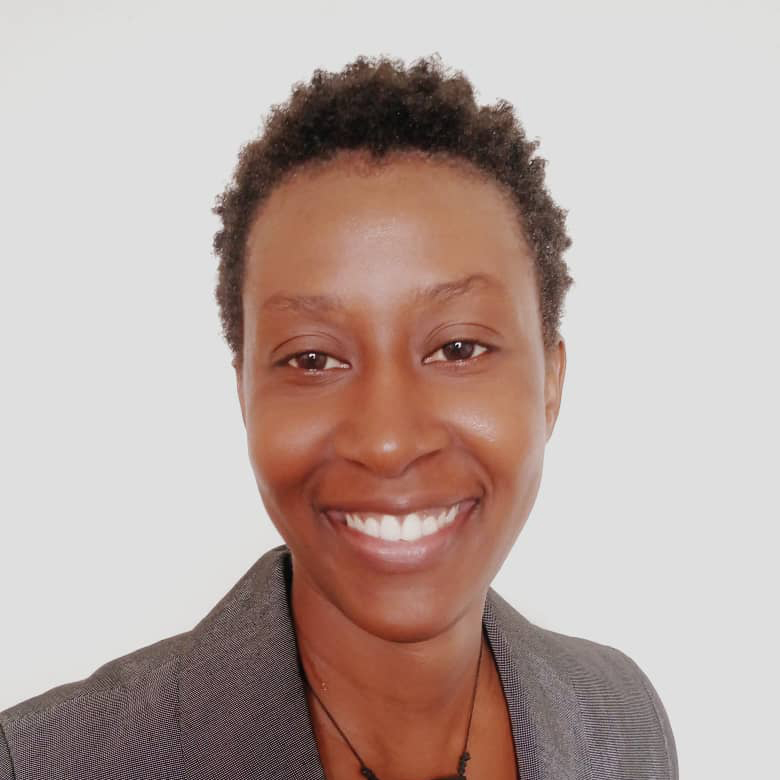 |
In the digital era, having digital literacy requires not only the ability to use software or to operate a digital device but also a large variety of complex skills such as cognitive, motoric, sociological, and emotional skills that users need to master in order to use digital environments effectively. Unfortunately, the research on digital literacy lacks a well-established theoretical framework. Given the growing importance of digital literacy and its challenges in daily life. This research aims to understand and Provide an overview of the impact of digital literacy among rural grassroots youth- leaders, build a digital profile of rural organizations, Outline the different types of digital services and products used and determine how satisfied rural grassroots youth- leaders are in the digital space. We are taking a hands-on and proximity approach to guarantee the success of the research in 2 phases. 1. Carry out a survey of 50 rural organizations in northern Haiti to be able to document the impact and constraints they face day to day in digital skills. 2- Train 2 organization representative youth leaders on digital skills while creating an environment and conditions conducive to their development. |
Emiliano Venier
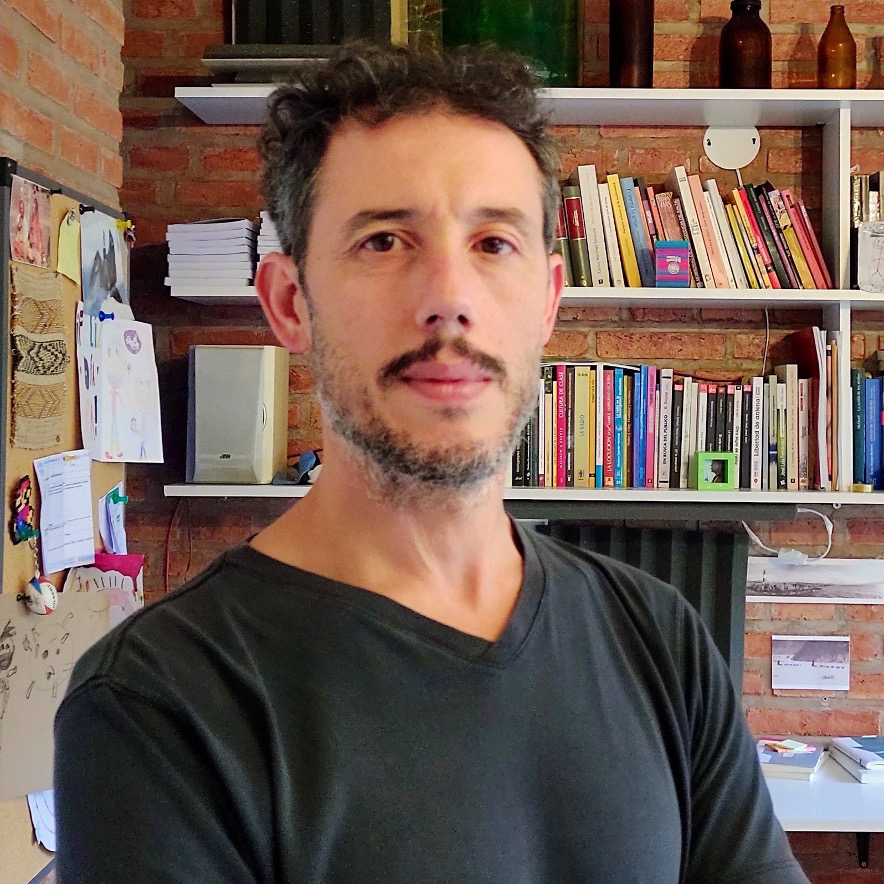 |
This research is an attempt to explain the relationship between the indigenous communities in the north of Salta with Internet connectivity and ICTs, by describing the several aspects that make up Internet access in the region. We have taken UNESCO's ROAM Internet universality indicators as reference. In this document, ?accessibility? includes coverage, connectivity, quality, affordability, content in local languages and equipment. This study is also complemented by an overview of public policy adopted by the government to ensure universal access in the territory of Chaco Salteño. Another relevant aspect in this study is the visibilization of the ways indigenous peoples make demands and express their position in relation to the Internet and the experiences of communities in the area of study to overcome digital inequalities and promote access to economic, social and cultural rights. |
Germán López Ardila
 |
This document, titled ?All for One and One for All: Regulatory Challenges to Open Internet?, aims at analyzing some bills proposed during the last few years before the Colombian Congress with the purpose of assessing the various types of risks to the open Internet that may be posed by these bills. Many of them impose unjustifiably strict censorship obligations or technically/legally unattainable obligations. This document is intended for lawmakers. It provides an explanation of the key components of Internet operation and Internet governance, so that regulatory debates can be more technical and better informed. This document has been developed using the legal design methodology having all lawmakers in mind. This research is expected to be presented at an event especially organized for its target audience. |
Héctor María Huici, Roberto Horacio Iglesias
  |
Cada vez es más frecuente que particulares y gobiernos pretendan bloquear con medios técnicos el acceso a ciertos contenidos en Internet por considerarlos ilegales. Esta ilegalidad y los "bloqueos" que en consecuencia se disponen pueden estar fundados en diversos motivos: la violación del derecho de propiedad ?particularmente el intelectual?, la afectación del honor o la intimidad de las personas o la promoción de actividades ilícitas (terrorismo, tráfico de sustancias o productos ilegales, juegos de azar no autorizados o bien la prostitución o pornografía infantil). Los "bloqueos" de Internet pueden también estar vinculados con la censura o restricciones a la libertad de información que, aunque en principio se las defina como medidas contra contenidos considerados ilegales, tienen que ver con entornos generalmente autoritarios y están originados más bien por razones de control político. El presente trabajo analiza aspectos técnicos, operacionales y legales sobre los bloqueos en internet, fundamentalmente los ordenados a los ISP, en base a tres estudios de caso en países latinoamericanos: Argentina, Uruguay y Venezuela. |
Joao Araujo Monteiro Neto
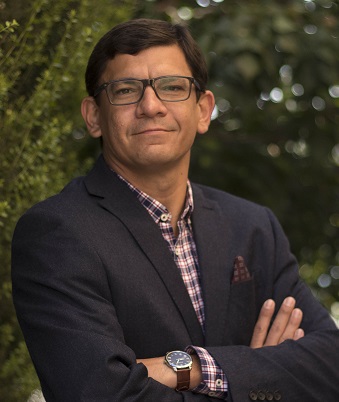 |
As the process of digitalization of social relations advances, it increasingly stresses the importance of guaranteeing free access to the Internet and to the resources, opportunities, functions, and services it provides. Free Internet access should be considered not only as an indispensable mechanism for the free development of human potential, but also for the promotion and exercise of the human rights recognized by the mechanisms of international law. However, free access to the Internet can be easily affected and limited by a multitude of technical and social mechanisms, including the limitation of connectivity in more remote areas, or the actions of groups that establish mechanisms to control what the communities they dominate or control may or may not use/access on the Internet. Using a proof-of-concept approach and a case study rationale, this research utilized qualitative instruments (semi-structured questionnaires) to assess the potential existence and resulting effects of the actions of criminal groups operating in the Edson Queiroz neighborhood in the city of Fortaleza, Ceará, Brazil, on Internet access for members of the local community. |
José Roberto Amaya Valencia
 |
Readers on online spaces are expected to have the skills to conduct a critical evaluation of information on the Internet. Schools and teachers play a critical role in teaching such skills. In that sense, this research focuses on how teachers educate their students for them to acquire said skills. This qualitative research seeks to serve as a first approach to the matter in El Salvador. Through documentary research and teacher interviews (which included 7th-grade Language and Literature teachers from four private schools in San Salvador and Santa Tecla), this research seeks to understand the criteria used in the classroom to critically evaluate online information, how educators teach this and what digital resources they use to do so. The results reflect the consistency between the criteria explained by teachers and the ones recommended by specialized literature, a teaching method that includes an initial guide to understanding the evaluation criteria, and the lack of reference to using online resources for teaching said criteria. |
Lourdes Lucía León Pacheco
 |
New technologies have made it easier to access rights, but their absence may be widening the gap for people who were already in vulnerable situations before their emergence. As technologies spread, new and interesting questions come up on the intersection between the interaction with the digital environment, human rights, public policy and the rights of persons with disabilities. In Peru, there is not enough information about how deaf people relate with technology and, specifically, how they exercise their digital citizenship. With the adaptation of the theoretical models of the digital divide and digital citizenship, this study develops a new digital citizenship scale with a focus on disabilities that allows deaf people to explain their interaction with the Internet and technologies. In this study, we identify the obligations of the Peruvian State in this matter and explore the uses and benefits gained by deaf people thanks to the Internet. In addition, we delve into the current gaps in order to accurately evaluate the issue. |
Marcos Cesar M. Pereira, Andre Fernandes, Rhaiana Valois


 |
The city of Recife, capital of the Brazilian state of Pernambuco, is a leading national technology center, and Porto Digital and the Computer Center of the Federal University of Pernambuco are among its highlights. Based on this scenario, the study sought to investigate the narratives used by the Municipal Government to justify public technology policies and whether such projects created risks for the development of a healthy digital ecosystem for local citizens. To do so, the 2021-2024 Strategic Plan was selected, along with the Conecta Recife, EITA LABS, Embarque Digital, GO Recife, and Recife Parcerias programs. By reviewing the documents available on official and non-official portals, together with quantitative data from the 2021 TIC Domicílios survey provided by CETIC.br, we conducted a sociological discourse analysis of these narratives as well as a risk assessment, using the requirements of the General Data Protection Law (LGPD) and debates in the literature on Internet governance as parameters. |
Nathan Paschoalini Ribeiro Batista
 |
This project aimed to analyze the role of Internet Community Networks in the reduction and/or mitigation of digital inequalities. The research hypothesis of the study posits that the implementation of Internet Community Networks leads to a process of mitigation of digital inequalities, as the development of such networks represents a process of digital inclusion understood as the appropriation of technologies (MORI, 2011) by members of their communities. For this purpose, interviews were conducted with members of the various sectors that comprise the Internet ecosystem, which will be published in podcast format. |
Paulina Urbieta
 |
The purpose of this work is to explain the relation between girls and teenage girls and feminist content in social networks, and to identify the possibilities and limitations of politicization and self-construction, considering the hypothesis that constant polarization of the (cyber)feminist movement in social networks hinders girls and teenage girls from becoming a part of it. We have used mixed methodologies, namely: 1) a quantitative questionnaire to collect information on the digital practices and tools used by girls and teenage girls aged 9 to 17; 2) a focus group of teenage girls aged between 15 and 17 to explore the experiences and perceptions of teenagers that interact with feminist content on social networks. |
Pedro de Perdigão Lana
 |
In a global context of dispute over Internet regulation, relationships of digital colonialism are observed, with a visible imbalance between more or less developed countries, and these have repercussions on the decisions of major technology companies whose choices can affect the full development of other actors worldwide. In this scenario, arguments in favor of digital sovereignty have become increasingly common. This regulatory impetus, however, may prove problematic for the Internet as a single, global network, leading to its fragmentation into different levels and categories. Fragmentation can occur in many ways, including in a subtle, commercial manner, the effects of which will only become apparent in the future. This study researches the existence of this ?covert fragmentation? in the private intellectual property policies of the Big Five (GAMAM), especially in the field of content moderation. The analysis confirms that the large platforms are not overly concerned with developing specific policies that are accessible or in line with local legislation, which creates the potential for a fragmenting response at the government level. Based on the observation of the discussion of related issues by public bodies, the agenda does not appear to be urgent. Nevertheless, a change in the behavior of major technology companies is suggested, even if driven by state incentives, to avoid greater fragmentation risks in the future. |
Raphel Belizaire
 |
A multiplicity of studies have already been carried out concerning cyberaddiction in certain regions of the world, and despite the diversity of views in the consideration of this phenomenon, an assertion always returns: the Internet has an influence on our daily lives. This mixed research, aimed at studying the impact of quality internet issues on remote worker's productivity in Haiti is of paramount importance, both for professionals, for decision-makers and for anyone who will be interested in the subject. A sample of selected people, made up of professionals working remotely and in other sectors were interviewed; Socio-demographic data as well as open and semi-open questions were asked, thus providing elements that can help answer the research questions related to the variables: quality and productivity. It is noted that the results obtained are of significant importance, insofar as the majority of the respondents live in urban areas, but nevertheless face problems of connection speed, and have on average lost contracts twice a year because of the poor quality of the internet. |
Ricardo Ríos
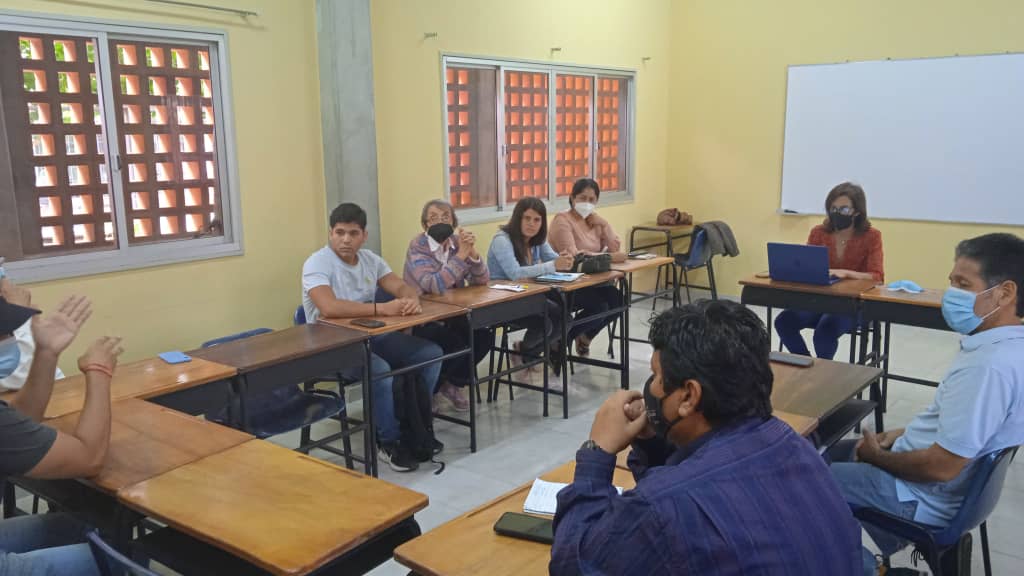
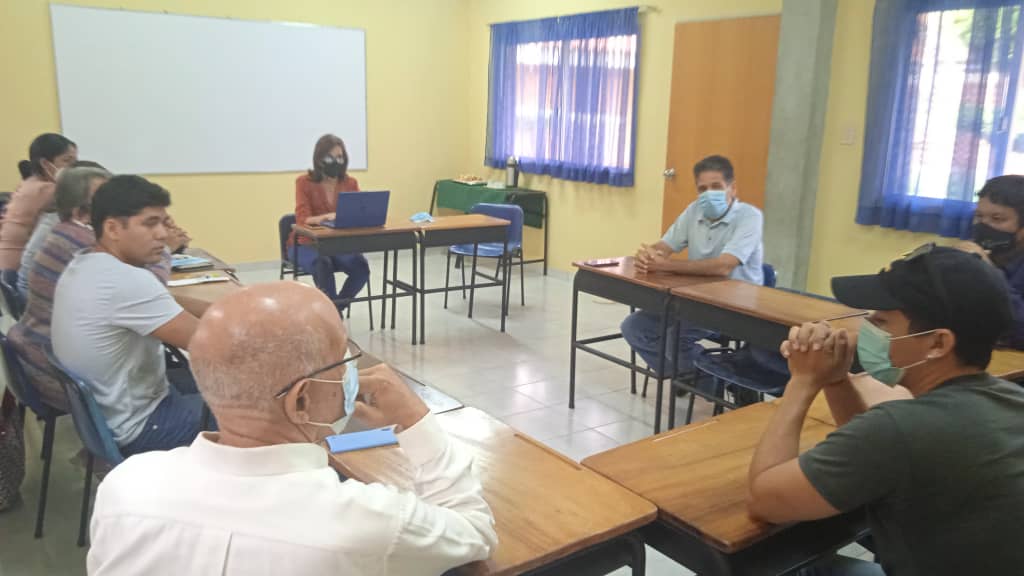
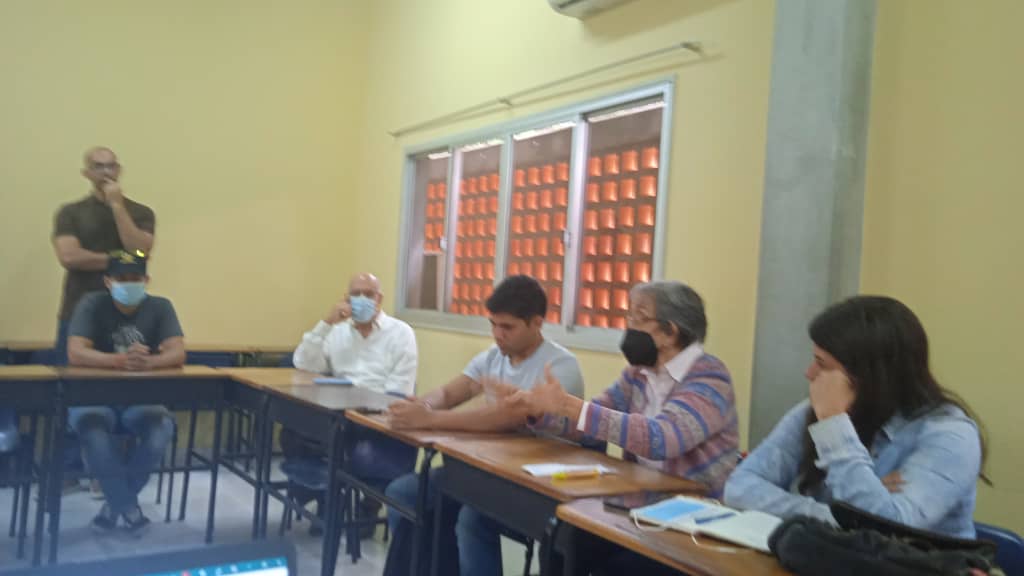
|
Freedom of expression is deteriorating in Venezuela. Traditional media such as the print media, radio and television have decreased in number. This is why social networks have taken a prominent role in the country. Therefore, social networks have also been restricted in many different ways, including regulatory, technical and law-enforcement measures. This research assesses the various traditional media (mainly print media and radio) that have been censored or shut down from 2015 to 2022. Then, it focuses on a detailed inventory of arrests, kidnappings and dismissals many users have suffered as a consequence of disseminating information or expressing their opinion through social networks. Additionally, it includes the result of a focus where the study focuses on exploring the general perception a particular segment of Venezuelans have about social networks and the risks of using them in the country. The study concludes that a censorship policy has been implemented progressively and that the risks of it becoming worse are still latent. This depends on the international political environment surrounding the Venezuelan government. |
Umut Pajaro Velasquez
 |
Las redes sociales son la forma de comunicación esencial para las personas LGBTQIAP+. Personas que comienzan a explorar sus identidades y maneras de ser en comunidad. Es decir, ayudan a crear un espacio de agencia donde se pueden exhibir dichas identidades. En los últimos años, la implementación de herramientas para moderar el contenido han creando mayor marginación y exclusión de sus derechos como comunidad y seres humanos. Por eso debemos preocuparnos y abordarlos en una discusión para mejorar las prácticas de estas plataformas. A medida que nuestros mundos sociales cambian cada vez más en línea, muchas de las tecnologías con las que se encuentran las personas están mediadas por algoritmos. Los algoritmos se han integrado profundamente en la vida en línea de las personas, a menudo trabajando para adaptar y personalizar sus encuentros de rutina con el mundo. ¿Cómo se hace propia, o se forma la identidad en un sistema algorítmico? Uno de los objetivos a medida que las personas adoptan nuevas tecnologías es entretejerlas en sus rutinas diarias, estableciendo un patrón de uso para hacer suya esa tecnología. En este documento, nos enfocamos en las experiencias de las personas en la aplicación para compartir videos de formato corto, TikTok. |